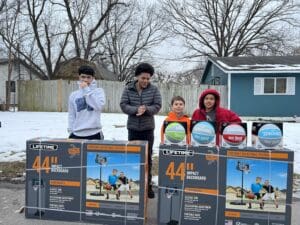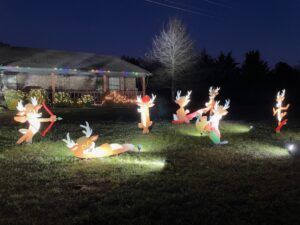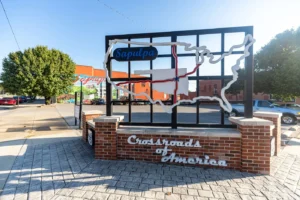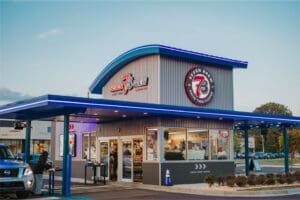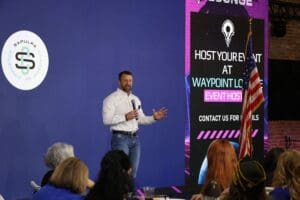To walk into Oasis Adult Day Center is to enter a warm, welcoming, and busy atmosphere.
People are settled in small groups in the spacious room, reading, enjoying the company of a visiting puppy, playing dominoes, or simply chatting and spending time with one another.
O.A.S.I.S. (Older Adult Services and Interfaith Sharing) is a daytime care center for people with physical or cognitive impairments, giving them a compassionate and purpose-driven place to be when their caregivers cannot be with them during the workday.
The program is often a much-preferred solution for families who face the possibility of institutionalizing a physically or cognitively-impaired loved one in a nursing home before they are ready.
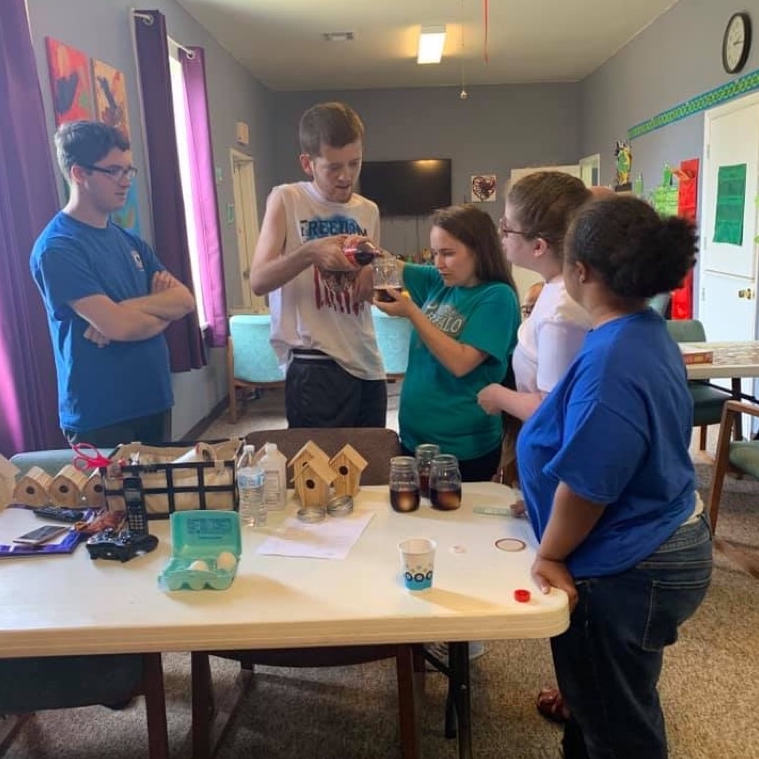
There is no comparable alternative in Sapulpa for adults with Alzheimer’s, dementia, or similar conditions of mental degeneration.
The participants of the program are a mix of senior citizens experiencing various levels of cognitive dysfunction and developmentally-impaired young adults.
The original Oasis program opened in Tulsa in 2005, then expanded to Sapulpa in 2008.
From that time until several months ago, it was located on East Lee Avenue, just east of the First Presbyterian Church.
Their building was struck by lightning last summer, melting the electrical system and ruining the central heat and air. The organization was forced to temporarily operate in the neighboring church’s Centennial Hall. As it was not an ideal long-term solution, Oasis began a search for a new property that could accommodate both their basic needs and ideal conditions.
Fortunately, the building to the east of the Good Shepherd Episcopal Church (previously the site of SHOW Inc.’s daycare, Kids’ Connection) at 1500 East Dewey Avenue was available for occupancy. Though this building too had seen its share of damage—from last May’s devastating wind and tornado storms—the organization knew it had found its new home.
The State has different regulations for childcare facilities and adult care centers, so a lot of hard work was needed by employees, participants’ families, and volunteers to make the necessary changes to meet the State’s standards and to officially move in November.
It is clear while talking to Executive Director Mandy Huebotter, a ten-year veteran of the program, that she is passionate about Oasis’s mission. She said her favorite thing about working there “is being able to offer hope to families that are facing seemingly hopeless situations.”

“These families face so many unforeseen challenges and it’s our personal mission to help in whatever way benefits them.”
The goal at Oasis is for the participants to retain as much independence and functionality as possible without having to leave home permanently or have round-the-clock supervision.
The staff strives to provide care for each individual on a physical, emotional, social, intellectual, and spiritual level, in a dignified and compassionate environment.
In addition to its administrative staff, Oasis employs 3-4 direct-care staff members, such as program assistants, nurses (CNAs and RNs), and a variety of other contract therapists.
They also currently have four volunteers who come to the center regularly, but they stress that more volunteers are always welcome and greatly appreciated.
Volunteers can teach classes or specialized skills or simply come to socialize with the participants and to interact with them through various ongoing activities.
Frequent activities include arts and crafts, games, exercise, walking, interaction with therapy dogs, discussion groups, field trips, spiritual or devotional time, and music therapy, among others.
When asked about the ongoing needs of the program, Huebotter quickly states that “funding is definitely the biggest challenge.”
Oasis is 100% privately-funded, meaning that it receives no state money. Families may pay a daily fee out-of-pocket, but the center also accepts respite vouchers and long-term care insurance, and some assistance may be offered through their sliding-scale monthly rates.
It does occasionally get funding from local organizations, such as grants from the Bartlett Foundation and donations from the MakeSense Foundation, but always needs more volunteer time and more funds for supplies, activities, and regular building maintenance. “All of it!” assures Huebotter. “Both [gifts of time and money] are phenomenal.”
Oasis is open weekdays from 7 a.m. to 6 p.m. and accepts those aged 18 and over with a diagnosis of cognitive or physical impairment.
The days at Oasis are busy and fulfilling, and include meals, snacks, an array of activities, exercises, and lessons, and no shortage of socializing.
They currently have 29 participants enrolled in the program, with an average of about 15 who attend daily. Some come one or two days a week; they work with the caregivers to find a balance that is right for their family.
Huebotter states that “We also are accepting people right now; [we have] plenty of openings.”
For more information on OASIS’s services, costs, enrollment criteria, or volunteer opportunities, visit their website at www.oasisads.org or give them a call on at 918-224-0410.
You may also check the OASIS, Inc. Facebook page for updates, photos, and details of their next big fundraising event in May.


